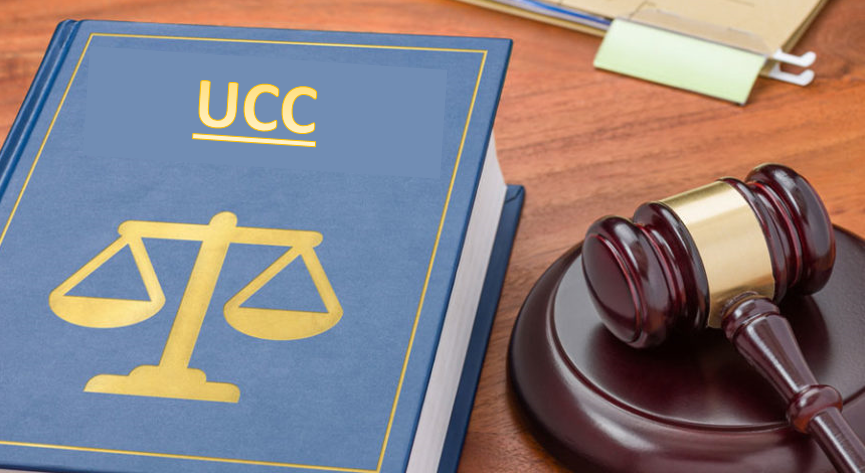Published On: 23rd July, 2024
ABSTRACT
Arbitration is a form of alternative dispute resolution where parties resolve their disputes outside of traditional court proceedings. Governed by the Arbitration and Conciliation Act, 1996, in India, it involves parties agreeing to submit their conflict to an impartial arbitrator. This process offers a quicker, more cost-effective resolution compared to litigation. Key stages include forming an arbitration agreement, initiating proceedings with an arbitration notice, selecting arbitrators, presenting claims and defenses, conducting hearings, and receiving an arbitral award. The enforceability of arbitral awards underscores its role in providing efficient and binding resolutions to disputes.
INTRODUCTION:
As a convenient way for parties to settle disagreements outside of the official court system, arbitration is a vital substitute for traditional litigation. Arbitration is defined in India under Section 2(a) of the Arbitration and Conciliation Act, 1996 as the voluntary agreement of disputing parties to submit their disputes to an arbitrator, who is a neutral third party. This approach provides for individualized adjudication catered to the demands of the parties, while simultaneously guaranteeing speed and anonymity. Arbitration is a popular option for both people and organizations looking for quick and enforceable outcomes since it avoids the complications and long wait times that are sometimes connected with regular court processes.
WHAT IS ARBITRATION?
According to Section 2(a) of the Arbitration and Conciliation Act, arbitration means any arbitration that is not administered by a permanent arbitral institution. In other words, it is an alternate dispute resolution method where disputes are solved outside of court. In this, both parties agree to resolve the dispute by a third person called an arbitrator.
For example: A disagreement exists between Company X and Company Z about a contract for the provision of commodities. They consent to arbitration rather than going to court. They choose a skilled arbitrator who considers the contract, hears all sides of the issue, and renders a legally enforceable ruling to settle the disagreement. Through this process, the parties can choose a speedier and frequently more affordable conclusion through arbitration rather than drawn-out court procedures and sometimes expensive litigation.
PROCEDURE OF ARBITRATION:
ARBITRATION AGREEMENT
when any contract related to partnerships, insurance, civil cases, or any other topic is being drafted. The contract will have an arbitration provision added by the parties, which will provide that in the event of a future disagreement between the parties, the arbitration procedure will be used to settle it. When creating a contract with an arbitration clause, the drafter must take great care to ensure that every scenario is considered, even those in which conflicts may arise unrelated to or from the terms of the agreement. To resolve the issues originating from the prior contract, the parties may, at that moment, create an arbitration agreement, but it must be done with mutual consent if the parties do not have an arbitration clause in the contract[1].
The Supreme Court of India upheld Clause 16 (arbitration) in a contract between South Delhi Municipal Corporation and SMS AAMW Tollways Pvt. Ltd. (2018). The court stressed that arbitration, in which a third party arbiter selected by mutual consent preside over the proceedings, is a legitimate means of settling conflicts. This ruling demonstrates the court’s endorsement of arbitration clauses in contracts and their enforcement as a useful tool for resolving disputes in India[2]
ARBITRATION NOTICE
According to this section 21 arbitration proceedings start when one party formally asks the other to settle the dispute through arbitration, unless both parties agree otherwise. This marks the beginning of the arbitration process for that particular dispute, setting the stage for further steps like choosing arbitrators and exchanging arguments. This clear starting point helps both parties understand when arbitration officially begins and how the process will proceed to resolve their disagreement.
SELECTION OF ARBITRATORS
According to the arbitration and conciliation act , Section 10:
The number of arbitrators that will hear each case can be decided by the parties, but it must not be even number. There shall be only one arbiter in the event that the parties cannot agree.
[4]
Section 11 addresses arbitrators’ appointments.
Unless otherwise agreed, arbitrators can be anybody, regardless of country.
The selection of arbitrators may be agreed upon by the parties. Each side selects one arbitrator, and those two choose the third (who serves as the primary arbitrator) if there are three arbitrators and the parties are unable to reach an agreement. If the process of selecting arbitrators comes to a standstill, the Supreme Court, High Court, or another specific individual or organization may intervene.
National Highways Authority of India (NHAI) v. Ssangyong Engineering & Construction Co. Ltd.
The Arbitration Act’s Section 10(1) was interpreted by the Supreme Court in this case, highlighting the parties’ autonomy to choose the number of arbitrators as long as it is not an even number. The case demonstrated how crucial it is to guarantee a majority decision-making procedure among arbitrators in order to avoid impasse, especially in complicated issues like construction contracts that are subject to arbitration provisions.[5]
CLAIM AND DEFENCES
According to Section 23 of The Arbitration and Conciliation Act, 1996, the claimant must provide the facts of their claim, the areas of dispute, and the remedy they are seeking within the timeframe set by the tribunal or by agreement. In a similar vein, unless otherwise agreed, the responder must provide their defense. Each party may provide relevant documentation or make reference to planned proof. The respondent may also, depending on the terms of the arbitration agreement, file a counterclaim or set-off. Generally, throughout proceedings, parties may revise their claims or defenses, unless the tribunal determines that it is too late. According to the 2019 modification, in order to maintain procedural efficiency and speed in arbitration procedures, statements must be completed within six months after the notice of the arbitrator’s appointment.[6]
HEARING OF PARTIES
PRELIMINARY HEARING
A preliminary hearing is held soon after the arbitrator is appointed to begin the proceedings. The purpose of this first meeting is to provide the groundwork for the arbitration procedure. The preliminary hearing’s main goals are to examine procedural issues and establish the agenda for upcoming sessions. The arbitrator issues a scheduling order at this phase that specifies important dates and deadlines. To guarantee that the arbitration proceeds in a planned and efficient way, this ruling sets down the parameters for information sharing between the parties and sets the dates for upcoming sessions.
HEARING PHASE
As the parties enter the hearing phase, they follow the arbitration’s set procedures and any prior agreements, like those found in contracts containing arbitration provisions. Here, each side gets the chance to make a thorough presentation of their case. Depending on the established procedural guidelines, this may be accomplished by written submissions, teleconferences, or oral presentations. In order to bolster their claims or defenses, parties may present evidence, summon witnesses to testify, and participate in cross-examination at this phase.
AWARD PHASE
The arbitrator ends the hearing phase when all relevant arguments and evidence have been made and reviewed. At this point, the arbitrator determines when the arbitration will conclude with the issuance of the final award. The arbitrator’s judgment on the merits of the dispute is reflected in the final award, which is comparable to a court ruling. Unless the parties have agreed differently or a consensual settlement has been achieved throughout the proceedings, it contains a detailed justification for the judgment. Crucially, the final award does not need to be formally registered in order to be enforced, much like a court verdict.[7]
WHAT IS ARBITRAL AWARD?
The decision made by the arbitrator is known as an arbitration award. One party may be required to pay the other party money as part of this award. A non-monetary prize might also be given, such ending a certain corporate practice or introducing an incentive for employment. To put it more simply, an arbitral tribunal’s ruling in a local or international arbitration is referred to as an arbitral award.
TYPES OF AWARD:
INTERIM AWARD: A temporary verdict provided by an arbitral tribunal during the course of ongoing arbitration procedures is known as an interim award. It is provided in advance of the final ruling in order to address pressing matters that cannot wait until the arbitration is over. These decisions play a crucial role in preserving the status quo, averting more harm, or guaranteeing the arbitration process’ efficacy.
FINAL INTERIM AWARD: A final interim ruling in arbitration is binding and final, providing temporary relief or resolving certain concerns on a provisional basis. It may involve taking steps like preserving assets, resolving financial disputes, selling products or giving temporary custody, granting injunctions, or designating receivers. Maintaining the status quo and safeguarding the interests of the parties are its principal goals throughout arbitration. Section 17 of the 1996 Arbitration and Conciliation Act governs this.[8]
A court may set aside an arbitral judgment under certain circumstances, as stated in Section 34 of the Arbitration and Conciliation Act, 1996. Within three months of being awarded, an application must be submitted as part of the procedure. Setting aside provisions can be used to situations including a party’s incapacity, an illegal arbitration agreement, inadequate notification, and irregularities in the procedure. An award may also be thrown aside by the court if it goes against Indian law’s core principles or public policy. The illegality of patents may also be a factor in home awards. Applications have to be processed within a year and require prior notification to the other party.
ENFORCEMENT OF ARBITRAL AWARDS
Parties may file a court application to set aside an arbitral tribunal’s final award in order to contest it. The arbitrator’s appointment may not have been properly announced, the parties were not competent to make the decision, the award beyond the bounds of the arbitration, or the court may have the authority to revoke the decision.
Prior to enforcement, the holder of a domestic award is required under Section 34 to wait 90 days for prospective challenges. Writing is required for foreign awards, which fall within the purview of the Geneva and New York Conventions. To be binding, they have to be impartial, unambiguous, and able to settle the conflict.
CASE RELATED TO ARBITRATION PROCEDURES
- ANAND GAJAPATHI RAJU & ORS VS P.V.G. RAJU (DIED ) & ORS ON 28 MARCH, 2000
The Indian Supreme Court stressed in P. Anand Gajapathi Raju & Ors. v. P.V.G. Raju (Died) & Ors. (2000) 4 SCC 539[9] that arbitration agreements had to be read freely and extensively. The case concerned a family dispute with an arbitration clause, and the court decided that parties should be directed to arbitration rather than courts if such an agreement is present. This ruling is in accordance with Arbitration and Conciliation Act, 1996, Section 8, which requires courts to submit matters for arbitration in the event that an agreement is present. The ruling emphasized how crucial it is to abide by arbitration agreements in order to lessen the load on the legal system and advance arbitration as a productive alternative to litigation.
Union Of India vs M/S. Singh Builders Syndicate on 26 February 2009
The Supreme Court emphasized the need for prompt and economical arbitration procedures in Union of India v. Singh Builders Syndicate (2009) 4 SCC 523[10]. In resolving conflicts involving construction contracts, the court suggested putting in place fixed-fee arrangements for arbitrators in order to cut down on disproportionate expenses and time. This strategy sought to ensure prompt conflict settlement by streamlining arbitration procedures. The court promoted policies that support fairness and openness in fee agreements, highlighting arbitration as a workable substitute for litigation. By supporting fixed costs, the ruling sought to improve arbitration.
Indian Oil Corp.Ltd.& Ors vs M/S Raja Transport(P) Ltd on 24 August, 2009
The significance of arbitrators’ independence was highlighted by the Supreme Court’s decision in Indian Oil Corporation Ltd. v. Raja Transport (P) Ltd[11]., which held that an arbiter with a stake in the resolution of the dispute cannot be unbiased. In order to maintain the integrity of the arbitration process, the case emphasized the necessity of fairness in arbitration proceedings and the requirement for objectivity on the part of the party-appointed arbiter. The goals of this ruling were to preserve faith in arbitration as a dependable process for settling disputes in an unbiased and equitable manner as well as to protect the fundamentals of natural justice.
Reference(s):
[1] Subodh Asthana, Arbitration Procedure under the Arbitration and Conciliation Act, iPleaders (May 22, 2024), https://blog.ipleaders.in/arbitral-process/ (last visited Jun 27, 2024).
[2] South Delhi Municipal Corporation vs Sms Aamw Tollways Private Limited on 22 November, 2018, https://indiankanoon.org/doc/161139889/ (last visited Jun 27, 2024).
[3] Section 21 in The Arbitration And Conciliation Act, 1996, https://indiankanoon.org/doc/138599/ (last visited Jun 27, 2024).
[4] Section 10 in The Arbitration Act, 1940, https://indiankanoon.org/doc/499427/ (last visited Jun 21, 2024).
[5] Ssangyong Engineering And … vs National Highways Authority Of … on 8 May, 2019, https://indiankanoon.org/doc/95111828/ (last visited Jun 21, 2024).
[6] Section 23 in The Arbitration And Conciliation Act, 1996, https://indiankanoon.org/doc/1460737/ (last visited Jun 27, 2024).
[7] Asthana, supra note 1.
[8] Subodh Asthana, Arbitration Procedure under the Arbitration and Conciliation Act, iPleaders (May 22, 2024), https://blog.ipleaders.in/arbitral-process/ (last visited Jun 27, 2024).
[9] P. Anand Gajapathi Raju & Ors vs P.V.G. Raju (Died ) & Ors on 28 March, 2000, https://indiankanoon.org/doc/1703962/ (last visited Jun 28, 2024).
[10] Union Of India vs M/S. Singh Builders Syndicate on 26 February, 2009, https://indiankanoon.org/doc/276364/ (last visited Jun 28, 2024).
[11] Indian Oil Corp.Ltd.& Ors vs M/S Raja Transport(P) Ltd on 24 August, 2009, https://indiankanoon.org/doc/2073/ (last visited Jun 28, 2024).




